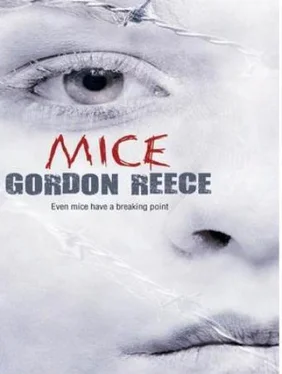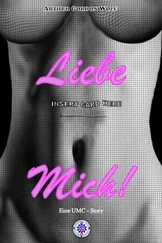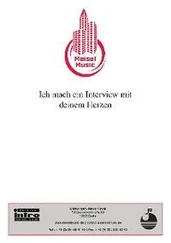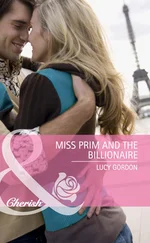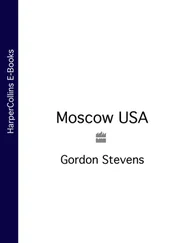I stood up as well, and, seeing me, the policeman sprang out of his chair with rather more eagerness than was fitting. The three of us stood there uncertainly, each of us hiding our relief that the interview was over.
‘Oh, before I forget.’ Mum took the fat man’s glasses from the top of the piano. ‘The ambulance people left these behind.’
The policeman held up the large frames, and seemed to be about to make a joke about them when he remembered the circumstances in which they’d been lost. They just fitted into his breast pocket.
We walked the policeman to the door and out onto the drive.
‘Is that his car?’ he asked, pointing with his cap.
‘Y-yes,’ Mum said, unable to conceal the nervous catch in her voice.
He went around to the driver’s side of the battered, turquoise car and leaned inside. He stayed there for several minutes. I threw Mum a questioning glance, and she just shrugged her shoulders back at me, but I could see the frown lines had returned to her forehead.
The policeman finally closed the driver’s door, then walked right around the car and stood with one hand on his hip, the other scratching his temple.
‘That’s strange,’ he said, with a perplexed smile.
‘What is, Officer?’ Mum’s whole demeanour was suddenly less convincing than before. Her expression was strained, fragile.
‘Well, it’s parked so neatly .’ At last he’d found something to interest him in this tedious little errand he’d been sent to run. ‘I mean, he was having a heart attack, but he managed to park his car perfectly behind yours. And not only that, he’s put it in neutral, he’s put the handbrake on, he’s turned the engine off and he’s pocketed the keys — all while he must have been in excruciating pain. It’s amazing!’
He beamed at Mum, but she seemed unsure how to respond; she was having great difficulty meeting his clear blue gaze.
‘Force of habit, I suppose,’ she said drily.
‘It must have been,’ he laughed, hooking a thumb into a trouser pocket, ‘it must have been. But it’s incredible, isn’t it?’
‘Yes,’ Mum was reluctantly forced to agree. ‘It’s hard to believe.’
The policeman stared at the car with amused bewilderment for a few moments more, then with a final shake of the head that said he’d never cease to be amazed by the things he saw in his line of work, he turned away and walked back to his patrol car.
‘We’ll get someone out to you tonight to tow it away,’ he called over his shoulder. ‘I’m sure you don’t want that blocking your drive for weeks on end!’
And with that he started his engine and, with a casual mock salute, drove away.
The next day, Sunday, Mum and I slept in. We broke our routine and treated ourselves to a huge cooked breakfast — eggs, bacon, mushrooms and fried tomatoes — and ate it sitting at the kitchen table, flicking through the numerous supplements in the Sunday paper.
Mum looked ten years younger, the exhaustion, the dreadful strain of the previous morning, had vanished from her face.
‘Did you sleep well?’ I ventured.
She smiled broadly. ‘Very well, thanks, Shelley, very well indeed. Like a baby.’
I smiled too. Mum was sleeping again. That was a good sign.
That day had a special, magical quality to it, like Christmas Day. After everything that had happened the day before, after everything we’d been through since the early hours of April the eleventh, the nauseating roller-coaster ride that our lives had become, the relief that it was all finally over was exquisite.
I was in a state of bliss. I felt like the survivor of a shipwreck who, after drifting for weeks in an open lifeboat, lashed by storms, capsized again and again by waves the size of houses, is rescued against all the odds and suddenly finds herself sitting before a blazing fire, wrapped in blankets, sipping a hot drink. I relished every small, mundane detail of the world around me as if I were witnessing a miracle: the way the mushroom cloud of milk slowly spread its looping tentacles into the darkest depths of my coffee, the motes of dust gyrating like miniature solar systems in the sunlight slanting through the kitchen window, the minuscule purple veins on Mum’s lowered eyelids as she read the paper, the distant church bells that merged into one faint, crystalline note and seemed to speak of an idyllic, chocolate-box past. I relished all of it, I loved everything that there was for being.
We didn’t get dressed until eleven, and even then we just sat back down at the kitchen table and carried on reading the paper and made yet another pot of coffee.
We didn’t talk very much about the events of the previous day, but every now and then a thought would float into our heads and one of us would speak.
‘Do you think the blackmailer was telling the truth?’ I asked. ‘You know, when he said he hadn’t told anyone else that we’d killed Paul Hannigan?’
Mum considered. ‘Yes, I think he was. He told us the truth about his heart condition, after all.’
‘And about Paul Hannigan not having any close family who’ll come looking for him?’
‘That’s harder to say. That’s just what Hannigan told him. All I can say is that my gut feeling is it’s over now. I really believe it’s over now.’
A little later Mum exclaimed, ‘Imagine if I’d hit him, Shelley! We’d have had his body to get rid of, and that blasted car. Imagine! ’
I shook my head, appalled at the thought of how close we’d come to having to enter that chamber of horrors all over again. What on earth would we have done with the fat man’s body? Buried it in the garden? Dug a grave in the vegetable patch? And what would we have done with the car? Abandoned it somewhere else with all the risks that entailed, or would it have been possible to sink it in one of the mine shafts in the national park as I’d suggested? It didn’t bear thinking about. .
‘Thank God you’re so cack-handed,’ I joked, but Mum didn’t laugh as I’d expected.
‘It’s like a miracle ,’ she said. ‘I mean, how could I have missed from that close? The gun was virtually touching the back of his neck. It’s not possible, Shelley. It’s just not possible.’
Later still, thinking about the conversation we’d had the day before ( Zugzwang. It’s an expression from chess. ), I said, ‘It’s all been a bit like a game of chess, hasn’t it?’
‘I suppose so, in a way. We certainly had to think hard about every move we made.’
I thought about all the decisions Mum had made since she’d brought the chopping board crashing down on Paul Hannigan’s skull: to bury him in the garden instead of calling the police, to keep on with our routine as if nothing had happened, to dump the bin bags in the abandoned mines where they were never going to be found, to keep the gun, to stage the fat man’s death for the paramedics the moment she realized he’d died of a heart attack. So many difficult decisions, so many right moves.
‘You played a brilliant game of chess, Mum.’
‘We both did, Shelley. We both did.’
When my back was starting to ache from sitting in the wooden chair for so long and I was tired of reading about new fashion trends and new diets and new movies and new starlets, I said, ‘I don’t feel guilty about what we’ve done, Mum. I’m glad they’re both dead. I don’t feel guilty about any of it — not even about yesterday. He got what he deserved. Good riddance to bad rubbish, I say. Everything we’ve done, everything — it’s all been in self-defence. Even yesterday.’
After lunch we drove into the countryside and went for a long walk through the water meadows by the river. It was another glorious day, and the colours of the landscape seemed incredibly vibrant. The yellow of the rape flowers was so bright I could hardly bear to look at it; it was like staring into the broiling heart of the sun. The sky was a deep cerulean blue, the distant hills an exquisite lavender, the young trees along the riverbank a lime green verging on yellow, the tall tussocky grass a rich emerald and the wild flowers that grew among it the purest zinc white.
Читать дальше
